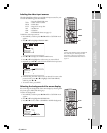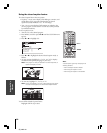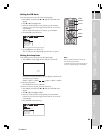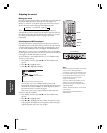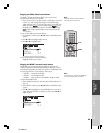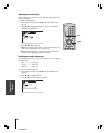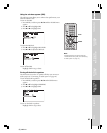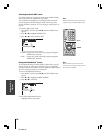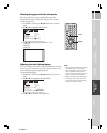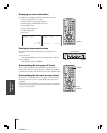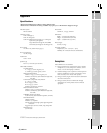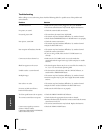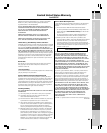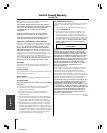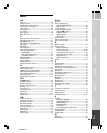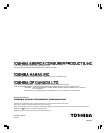
61
(E) 26HL83
Introduction
Connecting
your TV
Using the
Remote Control
Setting up
your TV
Using the TV’s
Features
Appendix
Index
E
S
F
Television System
NTSC standard
Channel Coverage
VHF: 2 through 13
UHF: 14 through 69
Cable TV: Mid band (A-8 through A-1, A through I)
Super band (J through W)
Hyper band (AA through ZZ, AAA, BBB)
Ultra band (65 through 94, 100 through 125)
Power Source
110-240 V AC, 50/60 Hz (See page 3.)
Power Consumption
150 W (average)
Audio Power
10 W + 10 W
Speaker Type
Four 2 × 3-1/2 inches (50 × 90 mm)
Video/Audio Terminals
S-VIDEO INPUT
Y: 1 V(p-p), 75 ohm, negative sync.
C: 0.286 V(p-p) (burst signal), 75 ohm
VIDEO/AUDIO INPUT
VIDEO: 1 V(p-p), 75 ohm, negative sync.
AUDIO: 150 mV(rms) (30% modulation equivalent,
47k ohm)
ColorStream
®
(component video) INPUT
Y : 1V(p-p), 75 ohm
PR: 0.7 V(p-p), 75 ohm
P
B: 0.7 V(p-p), 75 ohm
AUDIO: 150 mV(rms), 47k ohm
VIDEO/AUDIO OUTPUT
VIDEO: 1 V(p-p), 75 ohm, negative sync.
AUDIO: 150 mV(rms) (30% modulation equivalent,
4.7k ohm)
VARIABLE AUDIO OUTPUT
0–300 mV(rms) (30% modulation equivalent, 4.7k ohm)
DVI/HDCP INPUT
HDCP compliant
E-EDID* 1.3 compliant
DVI-D uncompressed, high-speed, digital single-link
connection
Suggested input scan rates: 1080i, 720p, 480p, 480i
Headphones jack
3.5 mm stereo
Appendix
Specifications
• Design and specifications are subject to change without notice.
• Never service or remodel the TV set by yourself. It may expose you to a fire hazard or dangerous voltage.
TheaterLink
OUTPUT: 3 V(p-p), 10k ohm
Dimensions
Width : 32-9/32 inches (820 mm)
Height : 18-37/64 inches (472 mm)
Depth : 5-25/64 inches (137 mm)
Mass (weight)
47.8 lbs (21.7 kg)
Operating condition
Temperature: 32°F – 95°F (0°C – 35°C)
Humidity: 20 – 80% (No moisture condensation)
___________
*E-EDID = Enhanced-Extended Display Identification
Exemptions
TACP/THI/TCL are not liable for:
(1)
damage caused by fires, natural disaster (such as thunder,
earthquake, etc.), use by third person, accidents, owner’s
misuse, or use in other improper conditions;
(2) incidental damages (such as profit loss or interruption in
business, modification or erasure of record data, and so
forth) caused by use or misuse of this product;
(3) damage caused by neglect of the instructions described in
the owner’s manual; and
(4) damage caused by misuse or malfunction through
simultaneous use of this product and the connected
equipment.



